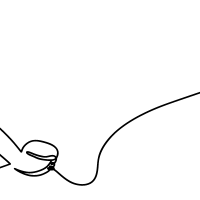Major donor fundraising is not just the preserve of large charities. Maureen Robbins and Susie Tempest set out 7 key steps that will help even small charities to secure large donations.
Major donor fundraising can be daunting, especially for small charities where the resources are limited - but with preparation, time and commitment, the benefits can be huge. By following the 'Seven Steps to Solicitation', which can be accessed through the FSI's free training courses, charities will give themselves the greatest chance of success with major donors. Here is a condensed version of the seven steps to get you started:
Step 1: Identify
Identify your prospects. There are multiple means of identifying prospects, including purchasing a donor list. These methods can be expensive. A more cost-effective way is to carry out a 'network mapping' exercise, which will help fundraisers to identify those individuals who are already warm to you and who may have the propensity to give. We recommend using the FSI's method, which builds on your current contacts and their networks. These are categorised in terms of your different stakeholder groups (e.g. trusts and foundations; current donors; trustees; staff; etc).
At this stage, agree how many prospects you feel you have to research and cultivate. In a small charity, this could be as few as a dozen. Remember that all new donors are potentially a source of 'new networks.'
Step 2: Research
Do your research. It is vital to research each of your prospects before you approach them. Not only will this give you a better indication of how much they are likely to give, prospects will typically have expected you to do your research - 'show them you know them.' Find out how much they give, to whom and why. Failure to do so might mean an unsuccessful ask, and even the risk of alienating the supporter from your cause.
Step 3: Plan
With these facts at your fingertips, you can start planning who to approach when and for how much. Planning will allow you to identify those who are ready to give and those who need cultivation, and prioritise accordingly. Use a Moves Management Grid as a way to segment your prospects between those who may be able to give funds to those who are simply passionate about your charity and could therefore be a spokesperson.
Step 4: Engage
Efficient research can provide excellent facts, but you still need to meet and engage with donors to really build a picture of who they are, and what type of giver they are. Different types of engagement opportunities, such as special events, allow fundraisers to confirm giving motivations and help build rapport. Ensure the level of engagement is relevant to the interest of the donor, and adjust the method of your ask accordingly.
Step 5: Ask
Practise your pitch before delivering it. Double check that your prospect has both the ability and propensity to give. Check you are asking for an appropriate amount, and for a project that will appeal to them. Anticipate questions and prepare answers, including details on the charity's finances. Remember that objections and questions are opportunities for more information.
You'll then be ready to make your ask. This is usually done from peer to peer - usually trustees; however, sometimes a trustee may feel uncomfortable doing this, in which case an introduction to the fundraiser should be made.
Step 6: Close
Run through the details with your donor, and confirm everything that's been agreed. Remember, if the donor says 'no', this does not necessarily mean 'never'; it can simply mean 'not now'.
Step 7: Thank
After any communication you should always thank your supporter - preferably by email and within 24 hours, and followed up by letter as soon as possible. Thanking your donor appropriately is really vital, as this is the beginning of, hopefully, a long donor journey.
Maureen Robbins is a fundraising trainer for the FSI, and Susie Tempest is fundraising manager at the Charleston Trust. She implemented a successful major donor programme in a small charity following free training with the FSI.
The FSI provides fundraising training in 15 core topics across the UK. For further information on implementing a major donor programme, charities with a turnover under £1.5m are able to access the FSI's Practical Major Donor Training Course for free.





